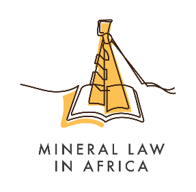
Project 3 has been led by Hanri Mostert, Professor of Private Law, at the University of Cape Town, South Africa. She is also a Visiting Professor, Department of Private Law and Notary Law, Groningen Centre for Law and Governance, Rijksuniversiteit Groningen. Prof Mostert is the SARChI Chair for Mineral Law in Africa.
Prof Mostert was the lead researcher for legal and regulatory aspects. She and her team were tasked with researching The Contribute of the Law.
This part of the project undertook a critical analysis of the existing regulatory frameworks applicable to explore the broader, inter-disciplinary question. In particular, the environmental, land use planning and mining law components at stake in rehabilitation issues deserve such scrutiny. It should further be determined which incentivising/sanctioning mechanisms will promote sustainable solutions.
Environmental problems arising from mining activities show similarities across many jurisdictions: land degradation and soil erosion, deforestation, water management, climate change and waste pollution [1]. The negative environmental impact of mining waste and pollution is visible, for example, in the toxic contamination of soils. The rehabilitation of mines is essential to achieve some measure of sustainability. Updating relevant legal frameworks is crucial to this exercise [2].
Whilst the other disciplines may provide the innovative technologies and solutions to a complex problem, it will be of little practical value if the legal framework is prohibitive in terms of the implementation of these suggestions. However, the research of the other disciplines to the project is essential to informing and guiding the direction of the legal research. As a result, the research relationship is symbiotic, working towards a common goal. A study of the law is critical to the project, and understanding the legal framework in this regard can promote adoption of the envisaged solutions proposed by other disciplines.
Finally, proposals will be made regarding the current mechanisms for enforcement of the law in respect of mine rehabilitation. More specifically, the current remedies, sanctions and penalties afforded and imposed by the law will be interrogated to establish the extent to which they will facilitate the envisaged mine rehabilitation proposals.
This project offers a unique opportunity: We can analyse the extent to which the legal framework enhances or hinders the adoption of innovative technology insofar as mine rehabilitation is concerned. Furthermore, if the law is indeed a barrier to the adoption of these solutions, our project aims to identify and suggest ways in which the legal framework should be amended. Any [tech] solution is of little practical value if the legal framework is prohibitive in terms of the implementation of these suggestions.
Therefore our key research questions are:
- How do current frameworks assist / hinder Mine Rehabilitation?
- How can legal incentives / sanctions promote sustainable solutions?
- ((How) should law be changed?
March 2019 Update
One of the commitments of the DST/NRF Chair of Mineral Law in Africa, is participation in at least one collaborative program. This COP program fits that goal very well. It is a collaboration with other DST/NRF Research Chairs at UCT, including natural scientists (bio, environmental and inorganic chemists), chemical engineers, legal specialists and developmental economists. Furthermore, it allows the MLiA Chair to pursue some of its own objectives, such as (i) to form strategic partnerships within the local and international research community, with the aim of producing solution-oriented scientific research findings; and (ii) to make research meaningful to society by translating research findings into actionable policy activities.
________________________________________